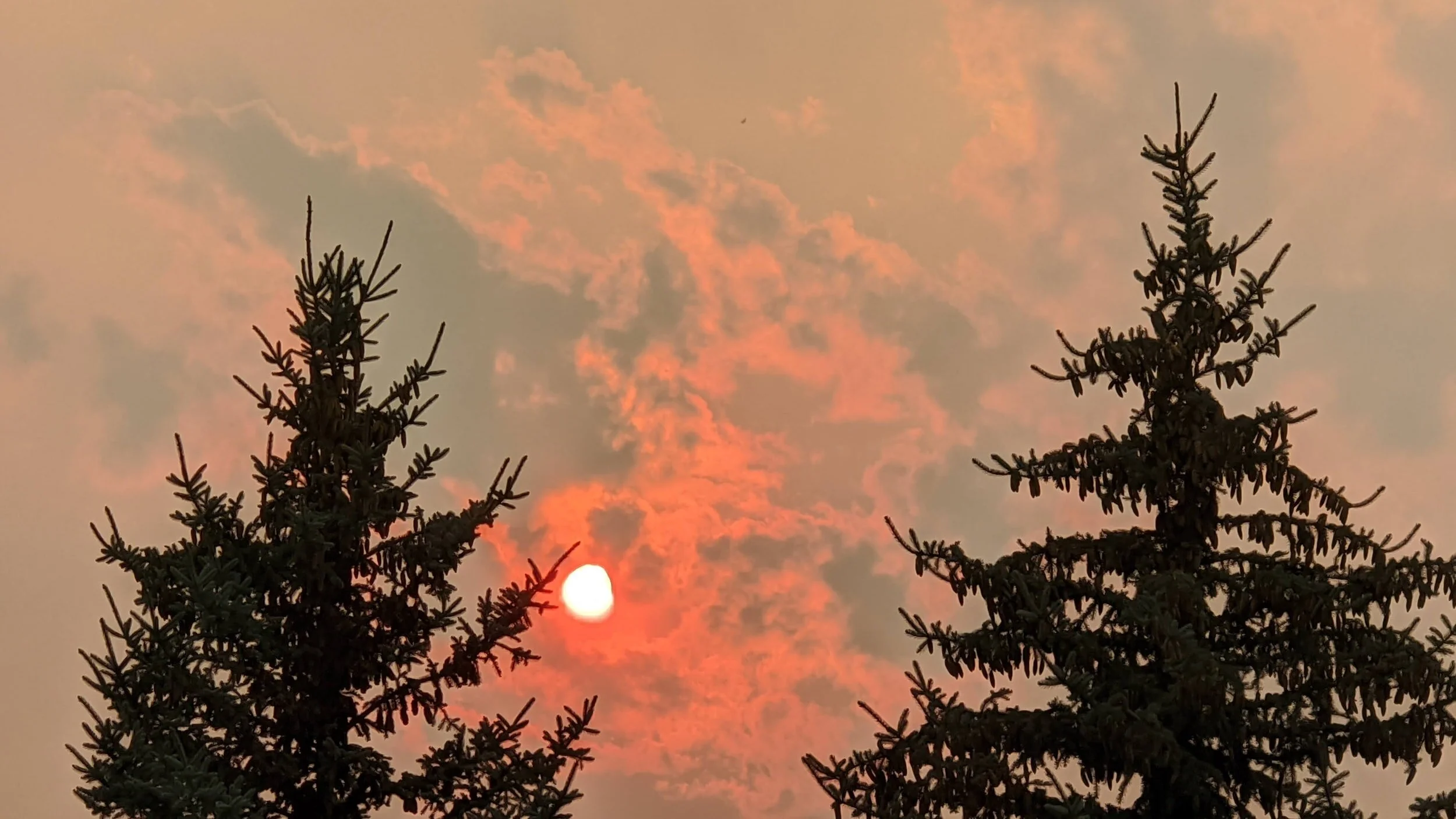August 14, 2021
If you’re like me, you spent a good portion of this week with the findings of the UN Climate Report rattling around in your body and mind. It wasn’t surprising, but it was, appropriately, alarming. With the extreme drought in Oregon and yet another heatwave in Portland, extraordinary sunsets made hot pink from local fires, and a sense of pandemic exhaustion everywhere, I’m feeling constantly aware of our place in history—and the future.
More than that, I’m noticing an increasingly pervasive sense of helplessness.
I’m constantly trying to limit my personal impact on the planet and other creatures. I’m a vegetarian. I drive very little, and only in my electric car. I’ve shorted the time I’m in the shower. I’m now drying loads of clothes outside. I signed up for a new recycling service to dispose of the things I always feel guilty throwing away. But I can’t help but feel, all the while, that nothing I do is going to stop what’s happening. Sometimes it feels simply delusional, like trying to hold off a tsunami with a bucket and good intentions.
Don’t get me wrong, I’m not going to suddenly change my behavior because I think we’re all doomed. I’m just very conscious of my own combined sense of grief and helplessness, a kind of a “freeze” trauma response that I notice deep in my being.
The problem is that while personal responsibility is critical, it’s really not up to any of us individually to fix this problem—at least not in the way we’ve been told/sold.
I recently learned, for instance, that the very idea of an individual “carbon footprint” is a highly successful diversion created by the oil industry. Seriously.
According to a Mother Jones article by Kate Yoder from last year:
“It’s a concept made popular by—get this—BP itself. More than 20 years ago, one of the company’s marketing campaigns helped cement the perception that the responsibility for reducing emissions lay with individuals, working the phrase ‘carbon footprint’ onto our tongues. The underlying message: Let’s talk about how to solve your emissions problems.”
Meanwhile, it’s major corporations that are refusing to package our food differently—selling us products wrapped in layers of (often unrecyclable) plastic, despite green alternatives. It’s corporations raising animals in ghastly conditions. And it’s just 100 corporations that are responsible for over 70% of global greenhouse gas emissions.
I’m not trying to shift the blame and point fingers: your fault, not mine!
I’m trying to make sense of my anguish, guilt, and helplessness and understand what to actually do about it. At the moment, I’m going to continue doing what I’m doing to curb my own personal impact. But ultimately, if climate change is a government and corporate responsibility, I know I also need to be pushing more vigorously for transformation on a corporate and policy level.
And finally, as I try to make sense of all this, there’s one more piece: Psyche.
This is not a small component. It’s the reason for The Salome Institute and what keeps me sane (relatively speaking). When I’m up against grief and fear, I try to remember to turn my attention into the freeze-state, and into my dreams, active imagination, and dialogues with the Self. This is how I know to find alternate ways through.
The universe, like the unconscious, is infinite. The future has not been written. We do not know what’s coming. But we can remember that whatever is unfolding is not known to our conscious minds alone.
With love to you and yours,
Satya
Satya Doyle Byock, Director of The Salome Institute of Jungian Studies

